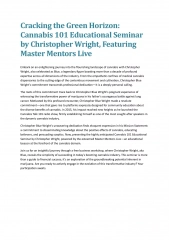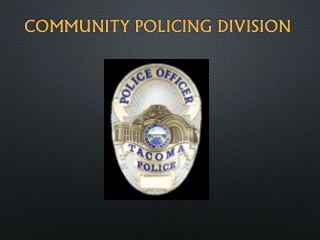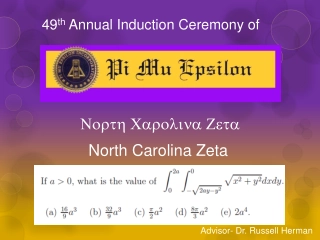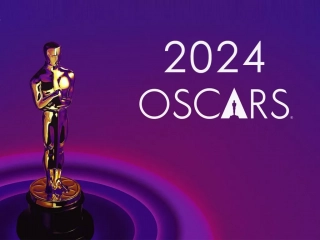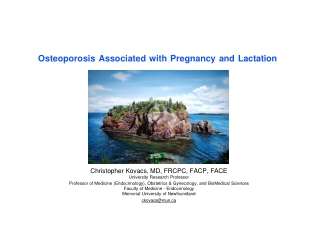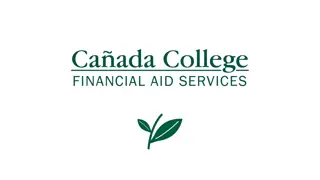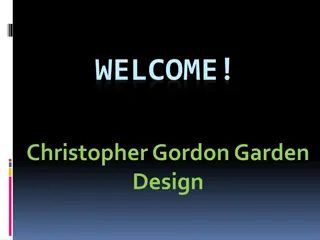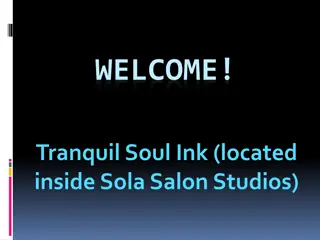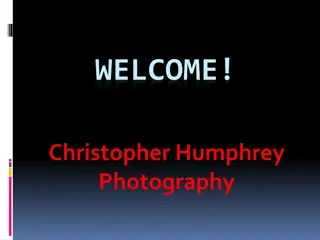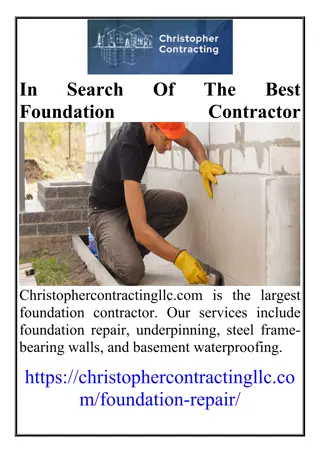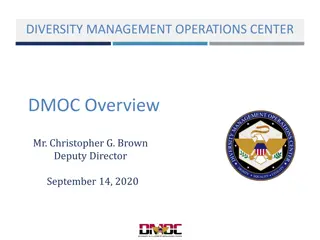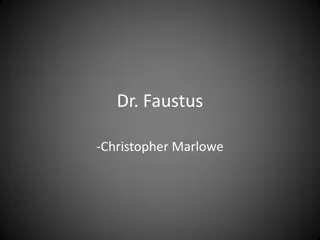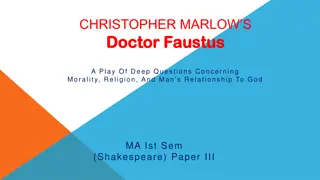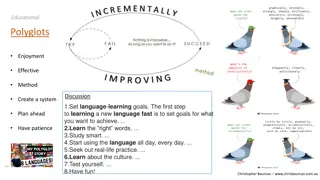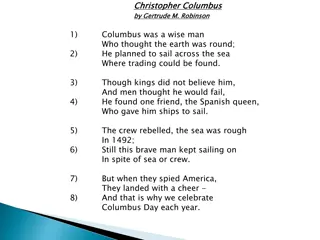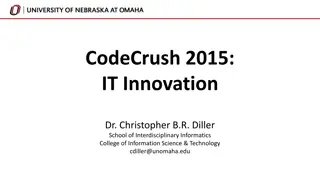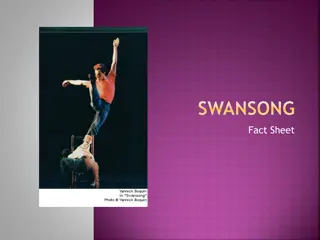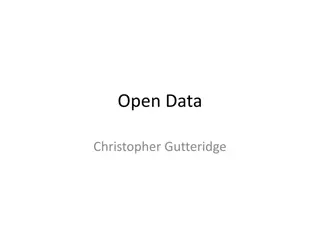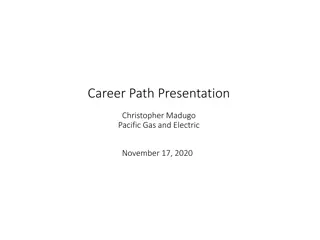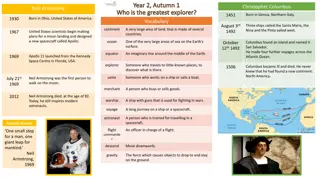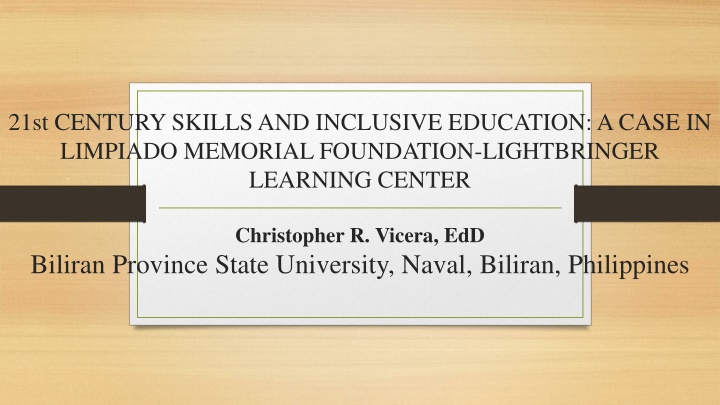
Unlocking the Potential of Inclusive Education and 21st Century Skills
Explore the significance of inclusive education and 21st-century skills for the modern era, highlighting the benefits for students of all abilities and the positive impact on the educational community.
Download Presentation

Please find below an Image/Link to download the presentation.
The content on the website is provided AS IS for your information and personal use only. It may not be sold, licensed, or shared on other websites without obtaining consent from the author. If you encounter any issues during the download, it is possible that the publisher has removed the file from their server.
You are allowed to download the files provided on this website for personal or commercial use, subject to the condition that they are used lawfully. All files are the property of their respective owners.
The content on the website is provided AS IS for your information and personal use only. It may not be sold, licensed, or shared on other websites without obtaining consent from the author.
E N D
Presentation Transcript
21st CENTURY SKILLS AND INCLUSIVE EDUCATION: A CASE IN LIMPIADO MEMORIAL FOUNDATION-LIGHTBRINGER LEARNING CENTER Christopher R. Vicera, EdD Biliran Province State University, Naval, Biliran, Philippines
Introduction Twenty first century skills practices comprise skills, abilities and learning dispositions that have been identified as being required for success in 21st century society and workplaces by educators. Many of these skills and practices are associated with learning and innovation skills, information, media and technology skills, life and career skills (E. Heretape, 2018). The basic idea is that students, who will come of age in the 21stcentury, need to be taught different skills than those learned by students in the 20th century, and that the skills they learn should reflect the specific demands that will placed upon them in a complex, competitive, knowledge-based, information-age, technology-driven economy and society.(www.edglossary.org, 2018).
Inclusive education is when all students, regardless of any challenges they may have, are placed in age-appropriate general education classes that are in their own neighborhood school to received high-quality instruction, interventions, and supports that enable them to meet success in the core curriculum. It is very important so that children are able to part of their community and develop a sense of belonging and become better prepared for life in the community as children and adults and provide better opportunities for learning. One of the joys of teaching career has been to witness the way the fabric of the class dynamic is woven from the range of abilities of the learners. It has been an experience that the diversity of the learners' abilities regardless of who they are bring richness to their relationships with each other and with their teacher, making each class unique and interesting in its own way (Chaula, 2014).
The school and classroom operate on the premise that students with disabilities are as fundamentally competent as students without disabilities. Therefore, all students can be full participants in their classrooms and in the local school community. Much of the movement is related to legislation that students receive their education in the least restrictive environment (LRE). This means they are with their peers without disabilities to the maximum degree possible, with general education the placement of first choice for all students (Alquraini & Gut, 2012). Similarly, Cook (2011) revealed that teacher attitudes about inclusion in their classrooms stemmed from their lack of confidence and perceived lack of proper training in that area.
The future is very bright indeed for this approach. The evidence is mounting that inclusive education and classrooms are able to not only meet the requirements of least restrictive environment for students with disabilities, but to benefit regular education students as well. We see that with exposure both parents and teachers become more positive. Training and support allow regular education teachers to implement inclusive education with ease and success. All around it s a win-win! It is in this study that, 21st century skills practices and inclusive education will put together and enhance development not only for regular students but also for students with disabilities and letting them experience the real 21st classroom scenario.
Research Design This study utilized the descriptive-sequential research design by Creswell, 2005 in obtaining data wherein the researcher assessed the 21st century skills practices and inclusive education knowledge and skills of teachers and students of Light-bringer Learning Center. Research Respondents The research respondents of this study are the teachers and students of Limpiado Memorial Foundation Incorporate. The target number of respondents will be drawn from the teachers and students populations.
Research Instruments The instrument that will be utilize in the study will be adapted from descriptive questionnaire survey for the Teachers' Practices on the 21st Century Skills published paper. Standardize survey questionnaires develop by Eric Heretape, Faculty of the Department of Education Bukidnon State University. Part II, on qualitative design for inclusive education developed by Blackie Cara on her paper The Perception of Educators Towards Inclusive Education in a Sample of Government School.
Data Gathering Procedure and Data Scoring The researcher will wrote a formal request to all the teachers and students of the Limpiado Memorial Foundation Incorporated for the dissemination and distribution of the questionnaires. The questionnaires will be personally given to the respondents of the study. The conduct of the interview will done one on one with the researcher using interview guide for inclusive education. All the data collected from the respondents were systematically tabulated, tallied, analyzed, carefully described, and interpreted in order to attain the accurate information needed.
Statistical Treatment of Data The data gathered in this study were tallied, processed into frequency counts, analyzed and interpreted using the appropriate statistical tools namely: frequency, percentage, mean, and Pearson Product Moment Correlation. On the qualitative design of the inclusive education sequential, explanatory and thematic design will be utilize.
Results and Discussion 21stCentury Skills Practiced by the Teachers Under learning innovations on the 21st century skills practiced by the teachers. Among all indicators, ten answered by research respondents as "Always" practiced the 21st century skills under learning innovations. On the other hand, there are also ten indicators answered by research respondents as "Often". Further, 21st century skills under learning innovation had always and often practiced by teachers respondents. This further implies that, students had acquire learning innovation skills through their teachers as they are practicing the 21st century skills.
Information, Media and Technology Participate in accessing information in an effective manner which is related to the learners learning." got a weighted mean of 4.3 which described as "Always." "Educate learners on how to use computers for learning." got a weighted mean of 3.4 which described as "Sometimes". While the rest of the indicators got a weighted mean under "Often". It implies that research respondents are participating in accessing effective manner related to learning but sometimes they are educating their learners on how to use the computer for learning.
Life and career 21st century practiced by teachers in terms of life and career described research respondents as "Always" while "Negotiate to teach a peaceable resolution or compromise acceptable to everyone." got a weighted mean of 4.2 as described to have "Often" practiced life and career 21st century skills. It implies that research respondents had practiced life and career in their teaching skills and build harmonious relationship with the learners by knowing when to talk and when to listen. It has an overall weighted mean of 4.6 described as "Always". it further implies that research respondents had establish commitment and respect learning as a lifelong process. They treat their learner as an individual deserving of respect and not as a representative of a group.
Knowledge and Skills of Teachers in Inclusive Education It implies that strong indication of the knowledge and skills of teachers in inclusive education had already been performed and agreed in both regular education teachers and special education teachers should teach students with learners with special needs. In summing up of knowledge and skills of teachers in inclusive education, it has an over weighted mean of 3.8 described as "Agree" which moreover implies that, research respondents have gain knowledge and skills in teaching inclusive education. Further implies that, with commitment and support of the administration of the school and with knowledge and skills of teachers regarding inclusive education surely students with special needs or even regular students will be able to do their task in the inclusive education classroom.
Knowledge and Skills of Students in Inclusive Education This implies that, students respondents have knowledge and skills in inclusive education. In summing up of knowledge and skills of students in inclusive education. It has an overall weighted mean of 4.0 described as "Agree". This further implies that, students respondents can adjust and acknowledge the different needs of classmates inside the classroom. Collaboration and cooperation of stakeholders and parents surely help in an efficient delivery of inclusive education in the normal classroom stream.
Relationship of Variables Significant Relationship between 21stCentury Skills Practiced by Teachers Knowledge and Skills in Inclusive Education The teacher s 21stcentury skills in terms of learning and innovation obtained correlation r-value of .294 with sig. (2-tailed) of .097 which means that the hypothesis was accepted. It implies that the learning and innovation skills are not directly related or affected by teachers knowledge and skills in inclusive education. However, information, media and technology skills attained r- value of .451** and .008 significant at the .01 level (2-tailed). Moreover, life and career skills obtained r-value of .588** and sig. (2-tailed) at .000 which is significant at .01 level. The results implies that the hypotheses were rejected. This means that the teacher s 21stcentury skills in terms of information, media and technology, life and career are significantly related to the student s knowledge and skills in inclusive education.
Significant Relationship between 21stCentury Skills Practiced by Students and their Knowledge and Skills in Inclusive Education 21stcentury skills in terms of learning and innovation obtained correlation r-value of .447** with sig. (2-tailed) of .009 which means that the hypothesis was rejected. Moreover, information, media and technology obtained correlation r-value of .095** with sig. (2-tailed) of .000 which significant at .01 level. The results may imply that the hypotheses were rejected. Further implies that the 21st century skills of students in terms of learning and innovation and information, media and technology are significantly related to students knowledge and skills in inclusive education. However, life and career skills of teachers obtained correlation r-value of .300 with sig. (2-tailed) of .090 which means that the hypothesis was accepted. It further implies that the life and career skills of students are not directly or affected their knowledge and skills in inclusive education.
Conclusion As gleaned from the findings of the study, the following conclusions are drawn. 21st Century Skills Practiced by the Teachers on learning innovation were often practiced while information, media and technology and life and career were always practiced by teachers respectively. Regarding, knowledge and skills of teachers had already been performed and agreed in both regular education teachers and special education teachers. Students have knowledge and skills in inclusive education. Students respondents can adjust and acknowledge the different needs of classmates inside the classroom. Moreover, learning and innovation and information, media and technology knowledge and skills practiced by teachers are significantly related. However, life and career skills are not directly affected by knowledge and skills practiced by teachers. Further, learning and innovation skills are not directly related or affected by student's knowledge and skills in inclusive education while information, media and technology and life and career are significantly related to student's knowledge and skills. Lastly, understanding in inclusive education anchors in learners with special needs, inclusive education and learning, and equality in education. There's a feeling happiness, satisfaction, and understanding felt by teachers inside inclusive classroom. Teachers possesses communication skills, analytical teaching skills and social and understanding skills in handling inclusive class. Leadership training, social responsibility training, and team building are trainings helps improve and increase teachers motivation and commitment in teaching inclusive education class were the aim is to give quality education for all.
Recommendations Based on the issues and implications of the results, the following recommendations are forwarded. 1. Trainings, seminars and conferences in teaching inclusive education could enhance and increase teachers motivation and commitment in teaching inclusive education class. 2. Learners with special needs should be included in a regular classroom where his educational needs can fully be given attention by teachers and his potentialities can function independently. 3. 21st century skills should be given importance to be delivered not only to regular learners but also to learners with special needs. 4. Acceptance, encouragement, respect and adjustment of teachers to the learners with special needs maybe given priority to attain the goals of education which is education for all. 5. Intensive and focus trainings in leadership, social responsibility and capacity building should be given emphasis by teachers to recognize the different needs of learners with special needs and regular learners. 6. A follow-up research focusing on the wider scope may be conducted to determine the effectiveness of the 21st century knowledge and skills practice by teachers and students herein recommended for implementation.

